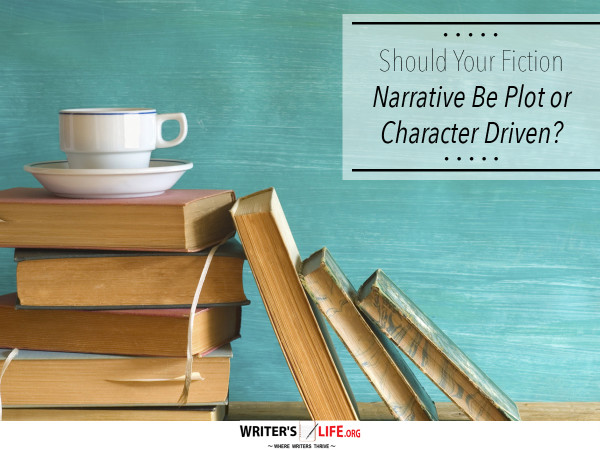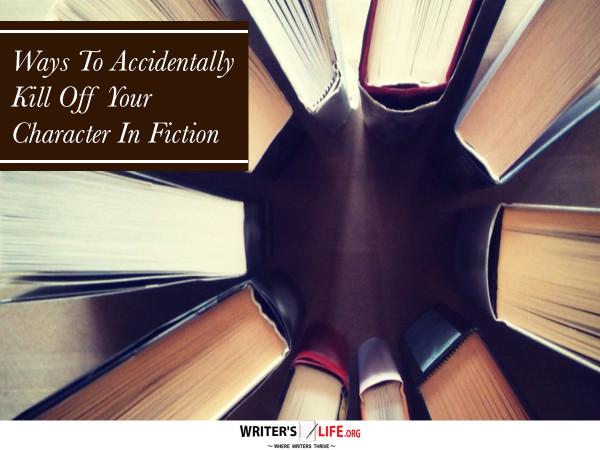- How To Tackle Jealousy In Creative Writing
- Common Submission Mistakes
- How To Stop Your Blog Becoming Boring
- The One Thing Every Successful Writer Has In Common
- How To Make Yourself Aware Of Publishing Scams
- Why Almost ALL Writers Make These Grammar Mistakes At Some Point
- 5 Tips For Authors On How To Deal With Rejection
- Top Mistakes to Avoid When Writing a Novel
- How to Avoid Common New Writer Mistakes
- 10 Mistakes New Fiction Writers Make
Should Your Fiction Narrative Be Plot or Character Driven?

Share, Pin or Retweet If You Love Writing!
ish me luck. I’m about to dive into one of the eternal debates among writers. Which is “better”: a plot-driven story or a character-driven story?
If you’re not familiar with the debate, let me explain why this question is so fraught with potential landmines. A common snub against genre stories is that they’re all about the plot to the detriment of the characters. Likewise, a frequent complaint about literary stories is that they have no plot and are all about characters who don’t do anything but whine.
Ooo, a topic that touches on several volatile subjects? *dons flameproof jacket* Let’s go see what drives us.
What’s the Difference between Plot-Driven and Character-Driven?
A plot-driven story focuses on the action, while a character-driven story focuses on a character’s thoughts. Simple enough, but let’s look at some examples.
Plot-driven novels are usually page-turners where characters have to make snap decisions. As a result, they’re often light on character development. Think Jurassic Park.
Character-driven novels show more of the process a character goes through as they make a decision. As a result, plot events are more spread out. Think Tom Hanks in Cast Away.
Is One Better than the Other?
The current publishing market makes us think plot-driven is better. After all, buzzwords like tension, conflict, page-turning, etc. sound more like plot-driven concepts. But as my examples above show, either approach can be successful.
Both approaches can also fail spectacularly. Interestingly, they often fail in the same way: Nothing changes for the characters.
No change means no arc for the characters, emotions, or story. At its essence, a story arc is “a character is at point A and then something happens and they end up at point B.”
My analysis of Green Lantern pointed out how Hal Jordan didn’t have enough of a character arc. Plot-driven movies must have enough character development to show how things change for them. Similarly, character-driven stories must have enough plot to give the characters a reason to change.
So maybe the real goal should be to have a solid mix of both characters and plot events. When we think of Harry Potter, we’re just as likely to think of our favorite characters as our favorite scenes. Our story won’t suffer if it has strong character and plot development.
How Do We Balance the Elements?
A page-turning story is about more than just throwing one event after another at the characters. Plots and characters should be balanced. As I mentioned in my Green Lantern post, I think the key to tying character and plot together is character motivation:
Motivations create the cause and effect that makes a plot hang together. ABC happens and that makes character do DEF because of XYZ motivation. Their action then makes GHI happen.
It can take time, a lot of thought and a lot of discipline to create a balanced fictional plot.The Get It Done, Writer's Toolkit. This is an ebook / audio CD combo set that teaches writers how to overcome wprocrastination and brainstorm the best possible strategies for coming up with the best narratives and story structures.
Character motivations need to be intricately woven into the story, or else the story would work with different characters and/or plot events.
- If a character’s goals and motivations aren’t important to the plot (or if they have no unique aspects), any character would do. And if a character doesn’t matter, they’re a puppet, merely going through the motions.
- If the plot elements aren’t important to the motivations for a character’s change (or if there are no unique events), our characters aren’t as deep as we’d like to think. After all, real people react differently when faced with a birth as with a death.
And if any character or plot event would do, then we haven’t come up with a unique story.
So what do I think really drives a story? A character’s reactions to plot events that motivate them to change.
Ta da! My answer is both. Or neither. Depending on how we look at it. *smile*
Writing your own novel? Writer's Life has a tool called “How to Get Published, Sell Books & Attract Tens of Thousands of Readers by Selling Your Content on Amazon’s Kindle” CLICK HERE! It takes you through the entire process of self-publishing from devising the content, to scheduling writing to formatting, proof-reading and marketing.
This post by Jami Gold was published with the title What Drives a Story: Plot or Characters? at http://jamigold.com/2011/07/what-drives-a-story-plot-or-characters/.



























